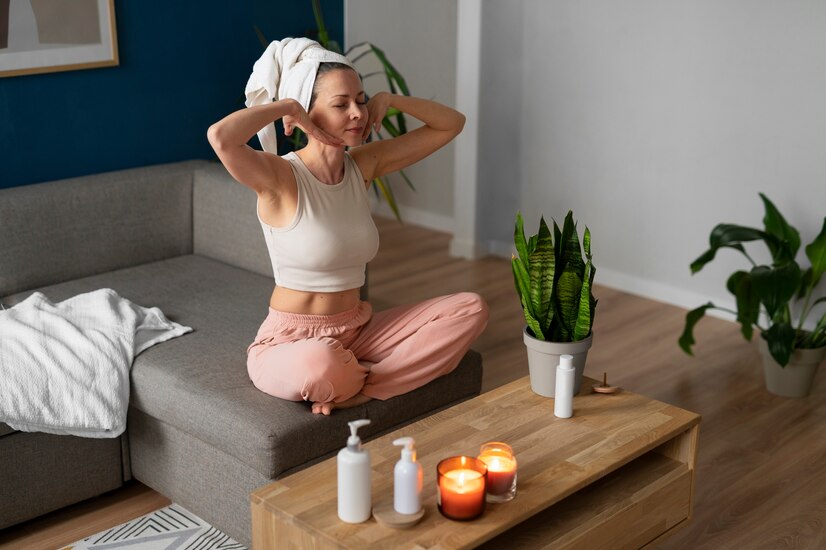Table of contents
- What Is CBD and How Does It Affect the Skin?
- How CBD Can Help with Common Skin Conditions
- What the Research Says About CBD and Skin Health
- Best Ways to Use CBD for Skin Conditions
- Tips for Choosing CBD Skincare Products
- Are There Any Side Effects?
- Final Thoughts: Should You Try CBD for Skin Conditions?
- FAQs About CBD for Skin Conditions
The skin is our largest organ — and it’s often the most visible sign of our health. For those struggling with chronic skin issues like acne, eczema, psoriasis, or inflammation, finding an effective, gentle solution can be life-changing. In recent years, many people have turned to natural remedies — and CBD (cannabidiol) has gained attention as a promising ingredient in skincare. But what does the science say about using CBD for skin conditions?
In this article, we’ll explore how CBD works, its potential benefits for common skin issues, and how to incorporate it safely into your skincare routine.
What Is CBD and How Does It Affect the Skin?
CBD is a non-psychoactive compound derived from the cannabis plant. Unlike THC, it won’t get you high, but it interacts with the body’s endocannabinoid system (ECS) — a complex network of receptors involved in regulating inflammation, oil production, immune responses, and more.
When applied topically or consumed orally, CBD can help calm inflammation, reduce sebum (oil) production, and support overall skin health. That’s why many people are now using CBD for skin conditions ranging from acne to eczema to rosacea.
How CBD Can Help with Common Skin Conditions

Let’s take a closer look at how CBD for skin conditions may benefit specific issues:
1. CBD for Acne
Acne is caused by clogged pores, excess sebum, and bacteria. CBD has shown anti-inflammatory, antibacterial, and sebum-regulating properties — making it a powerful ally in the fight against breakouts.
- A study published in the Journal of Clinical Investigation found that CBD inhibited excessive oil production in sebaceous glands.
- It can also soothe irritated skin and reduce the redness and swelling often associated with acne lesions.
2. CBD for Eczema
Eczema, also known as atopic dermatitis, is an inflammatory skin condition that causes dry, itchy, and cracked skin. CBD’s immunomodulating and moisturizing properties may help:
- Reduce inflammation and itching
- Improve skin hydration
- Soothe flare-ups and restore the skin barrier
3. CBD for Psoriasis
Psoriasis is an autoimmune condition that leads to rapid skin cell turnover, resulting in thick, scaly patches. CBD may slow down skin cell growth and reduce inflammation, helping to relieve itching and redness.
4. CBD for Sensitive or Irritated Skin
Even if you don’t have a chronic skin condition, CBD can be a calming ingredient for sensitive or reactive skin. It helps neutralize oxidative stress and protect the skin from environmental aggressors.
What the Research Says About CBD and Skin Health

While more clinical trials are needed, early research and anecdotal evidence show promise:
- A 2019 study in La Clinica Terapeutica observed improved symptoms in eczema and psoriasis patients who used CBD ointments for 3 months.
- A 2020 review in Frontiers in Pharmacology highlighted CBD’s potential to treat inflammatory skin diseases due to its anti-inflammatory and antimicrobial properties.
These findings, combined with growing consumer interest, are paving the way for more CBD-based skincare innovations.
Best Ways to Use CBD for Skin Conditions
When choosing CBD products for your skin, consider the following formats:
1. Topical CBD Creams & Balms
These are ideal for targeted relief. Simply apply directly to affected areas. Great for eczema patches, psoriasis plaques, or acne spots.
2. CBD Facial Serums & Oils
These help regulate sebum, improve skin texture, and calm inflammation — especially useful for acne-prone or red, sensitive skin.
3. CBD Body Lotions & Moisturizers
Perfect for larger areas or daily hydration, especially if you suffer from full-body dryness or irritation.
4. CBD Capsules or Tinctures
Taken internally, these can support skin health from the inside by helping reduce stress, inflammation, and hormonal imbalances.
Tips for Choosing CBD Skincare Products
- Look for full-spectrum or broad-spectrum CBD for added benefits from other cannabinoids.
- Check that the product has third-party lab testing for purity and potency.
- Ensure it’s free of parabens, sulfates, artificial fragrances, and other skin-irritating ingredients.
- Start with a patch test to check for any allergic reactions.
Are There Any Side Effects?
CBD is generally well-tolerated, even by sensitive skin types. However, mild side effects like redness, dryness, or itching may occur — especially with products that contain other active ingredients.
Always consult a dermatologist before starting any new skincare regimen, especially if you have a diagnosed condition or are using prescription treatments.
Final Thoughts: Should You Try CBD for Skin Conditions?
Whether you’re dealing with acne, eczema, or just sensitive skin, CBD for skin conditions offers a natural and promising alternative to harsh pharmaceuticals. Its anti-inflammatory, hydrating, and calming properties make it a versatile tool in your skincare arsenal.
As with any skincare product, consistency is key — and results may vary. But with proper use and a quality product, CBD might just be the game-changer your skin has been waiting for.
FAQs About CBD for Skin Conditions
CBD generally helps reduce acne by lowering inflammation and sebum production. However, if the product contains comedogenic oils or irritants, it could cause breakouts.
Yes, CBD is well-tolerated by most skin types and may actually help calm sensitive or reactive skin.
Some users notice improvements within a few days, but consistent use over 2–4 weeks is usually needed for noticeable results.
Topical CBD is ideal for direct relief, but oral CBD may also help by reducing inflammation systemically. A combination of both could be most effective.
CBD is not a cure, but it may significantly help manage symptoms and improve skin health when used regularly.





